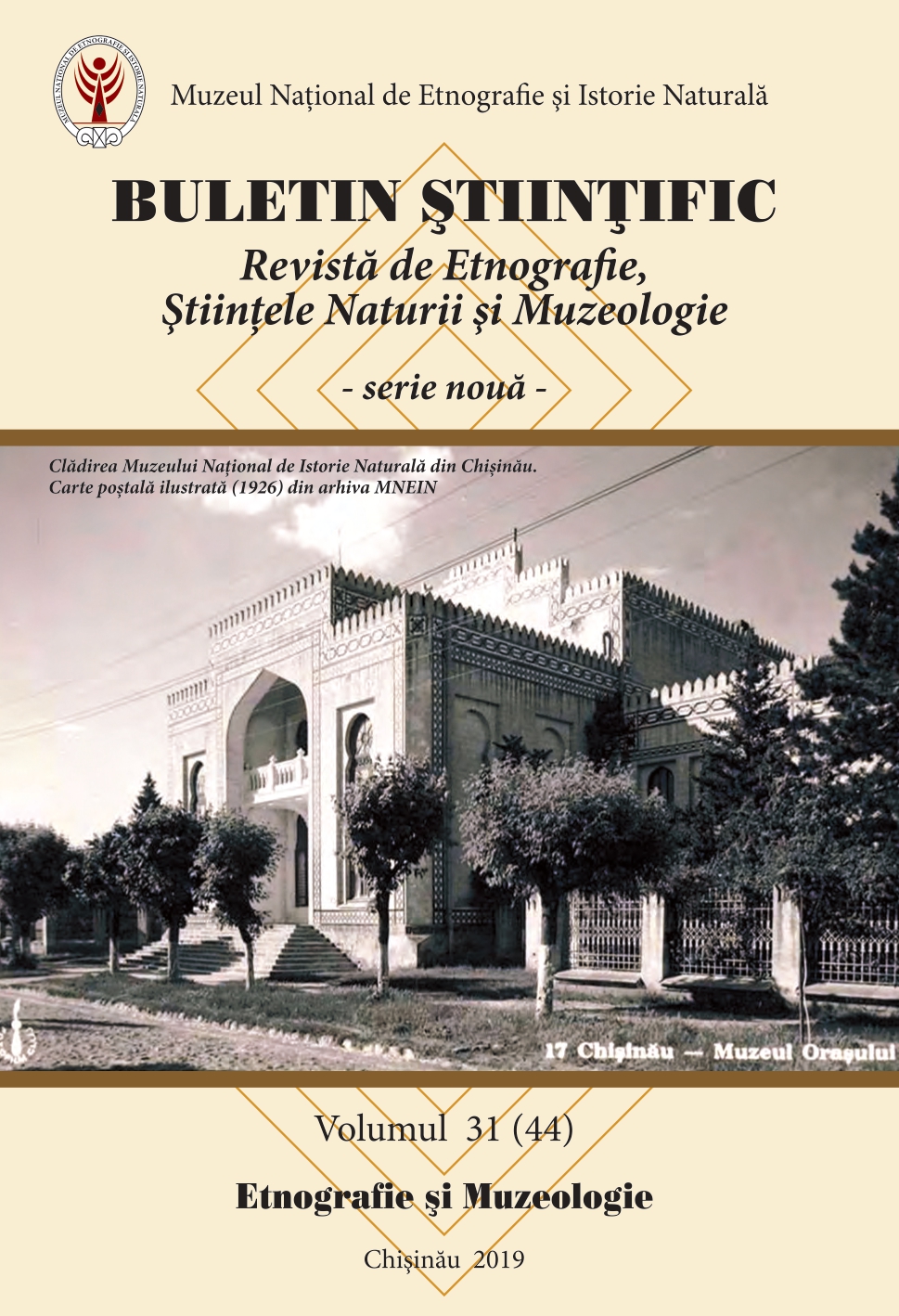Foaia de zestre şi tradiţia înzestrării femeii în Basarabia
(sec. XIX – începutul sec. XX) (I)
The dowry inventory and the tradition of endowing a woman in Bessarabia (19th – early 20th c.) (I)
Author(s): Corina RezneacSubject(s): Cultural history, Customs / Folklore, Ethnohistory, Gender history, Cultural Anthropology / Ethnology, Culture and social structure
Published by: Muzeul Național de Etnografie și Istorie Naturală
Keywords: Bessarabia;dowry inventory;woman's statute;family;rights;mentality;heritage;
Summary/Abstract: The author of the article analyses the dowry inventories from Bessarabia (19th – early 20th century), the main document that provided with dowry and which marked the woman’s statute within marriage. Drafting the dowry inventory and endowing was one of the cultural institutions that shaped the social statutes, mentality, social representations and imagery concerning women. In Bessarabia, during tsarism, thanks to local customs and laws, woman continued to have the same special statute regarding dowry, like in the Moldova Principality. From the analysis of dowry inventories, the author mainly infers a series of rights that assign a high social status for a woman: dowry could not be alienated without her will; the right to regain the dowry in case it was sold by the husband, without wife’s will; the right to bequeath it, if necessary etc. The proof for these equality rights, used by women in Bessarabia, is the frequency of dowry inventories from the 19th century, given by women to their sons and daughters. In practice, the husband managed the estate within marriage. But wisdom and the local tradition offered women possibilities to manage her own estate.
Journal: Buletin Științific. Revistă de Etnografie, Științele Naturii și Muzeologie
- Issue Year: 31/2019
- Issue No: 31
- Page Range: 78-95
- Page Count: 18
- Language: Romanian

